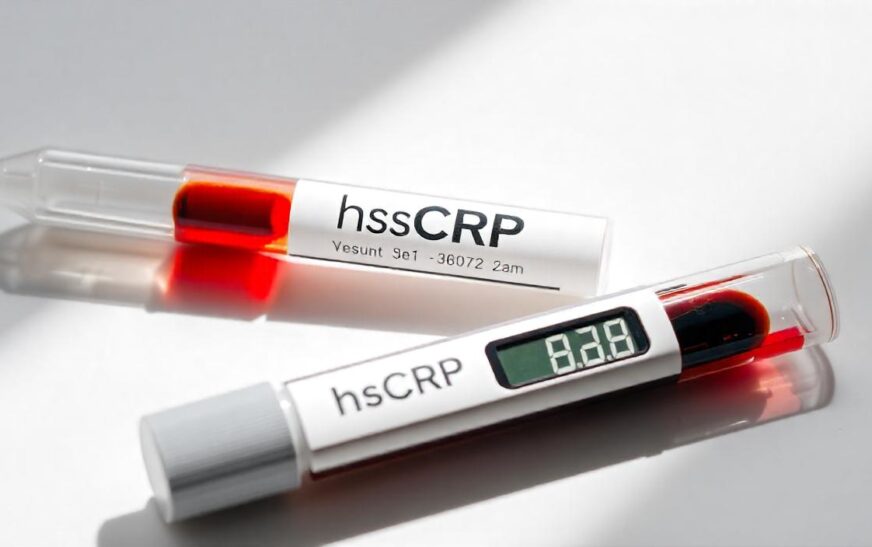Heart disease is one of the leading causes of death worldwide, and understanding how to assess the risk of developing it is crucial for a healthy life. One of the valuable tools doctors use to evaluate heart disease risk is the hsCRP test. In this post, we’ll explore what this test is, how it works, and why it’s important in assessing your heart health.
What Is the hsCRP Test?
The hsCRP test, or high-sensitivity C-reactive protein test, is a blood test that measures the level of C-reactive protein (CRP) in your blood. CRP is a substance your liver produces in response to inflammation in the body. While inflammation is a natural part of the body’s healing process, chronic inflammation can lead to health problems, including heart disease. This is where the hsCRP test becomes important—it helps identify low levels of inflammation that could increase your risk for heart disease, even before more obvious symptoms appear.
Why Is the hsCRP Test Important?
You may be wondering, “Why would I need this test?” Well, the hsCRP test is often used alongside other tests like cholesterol levels to give a clearer picture of heart disease risk. Studies have shown that people with higher levels of CRP are more likely to experience heart attacks, strokes, or other cardiovascular issues. Even if your cholesterol levels are normal, high levels of CRP can indicate inflammation in your arteries, which is a risk factor for heart disease.
Real-Life Example
Consider a 45-year-old man named Raj. He leads an active lifestyle, eats well, and doesn’t smoke. But during his regular checkup, his doctor orders an hsCRP test. The results show his CRP levels are higher than normal, even though his cholesterol and blood pressure are within the healthy range. This result gives his doctor an early warning sign that Raj may be at higher risk for heart disease, despite feeling perfectly healthy. With this knowledge, Raj is able to take proactive steps, such as adjusting his diet and exercising more, to reduce his inflammation levels and lower his heart disease risk.
How Does the Test Work?
The test is simple and involves taking a small blood sample. The results can be categorized into three levels:
- Low risk: Less than 1.0 mg/L
- Average risk: Between 1.0 and 3.0 mg/L
- High risk: Above 3.0 mg/L
If your levels fall into the high-risk category, your doctor may recommend further testing or lifestyle changes to reduce your risk.
Practical Advice for Lowering CRP Levels
If your hsCRP test results show that you have elevated CRP levels, don’t worry—there are several things you can do to reduce inflammation and lower your risk of heart disease:
- Exercise regularly: Physical activity is a great way to reduce inflammation and boost heart health.
- Eat an anti-inflammatory diet: Foods like fruits, vegetables, nuts, and fatty fish can help reduce CRP levels.
- Manage stress: Chronic stress can contribute to inflammation, so it’s important to find ways to relax and unwind.
- Quit smoking: Smoking is a major contributor to inflammation in the body, so quitting can help improve your heart health.
Final Thoughts
The hsCRP test is a simple but powerful tool that can help assess your risk for heart disease. By identifying low-grade inflammation in the body, it allows you and your doctor to take preventive measures before a heart issue arises. If you’re concerned about your heart health, consider asking your doctor about the hsCRP test during your next checkup. Taking early action can make all the difference in maintaining a healthy heart for years to come.









